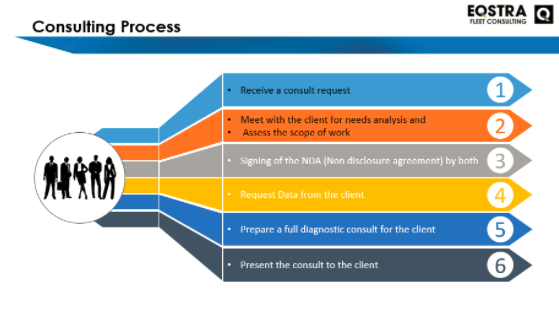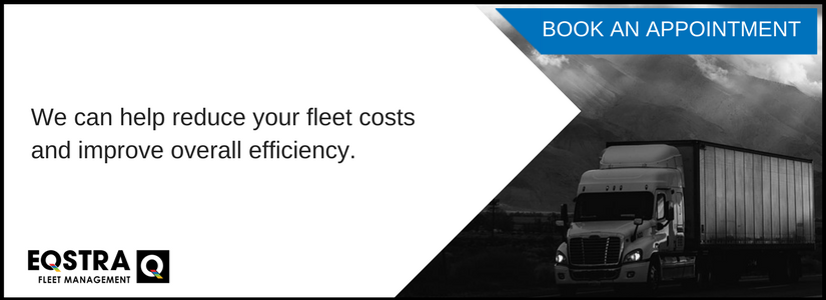
The fleet consultation process is complex and involves a lot of research. Here’s how to understand your fleet and how we prepare for a consultation session with you.
No matter what the size of your fleet, someone has to manage it - whether it’s taking care of administrative tasks or vehicle selections. This is where a fleet manager’s job becomes very important.
Fleet management is a very complex process which requires a lot of research, preparation and thorough investigation. It is a role that requires a specific skill set. The identification of potential efficiencies and savings, with the help of an experienced fleet consultant, can significantly improve the overall operation of a fleet.
The fleet consulting process at EQSTRA Fleet Management is tailored to a client’s needs and requires an independent assessment of a fleet’s overall condition.
Here’s what the consulting process at EQSTRA Fleet Management entails:
1. Do a thorough needs analysis
The fleet consulting process requires the expertise of a team of consultants. Petunia Ntuli, Fleet Consultant at EQSTRA Fleet Management says: “We need to understand a client’s challenges, strengths, weaknesses and fleet application to fully understand their pain points.” The first step in the consultation process is to respond to a consult request received from the sales team. A consultant will then meet with the fleet manager to do a thorough needs analysis.
The needs analysis includes looking at the following and determining what the requirements of the fleet are:
- Benchmarking: Benchmarking vehicle selection and cost per vehicle/ vehicle class and sector
- Vehicle comparisons: Total cost of ownership analysis to assist with vehicle selection
- Funding analysis: Finding the right fleet solution for our customers
- Fleet review: Review of all fleet costs to identify savings
- Optimal replacement cycle: Determine the right replacement cycle for vehicles
- Putting a policy strategy in place: Develop fit for purpose fleet policies aligned to our customers’ business strategies.
Says Ntuli, “Having the right vehicles in your fleet can reduce your fleet’s total cost of ownership and increase fleet productivity, so we have to tell a story and give recommendations to address the negative aspects”.
Analysing the data takes approximately three weeks and involves looking at a variety of aspects. Here’s what we look at:
- Fit for purpose analysis: Determining the size of your fleet is a difficult process and we can make sure that you have the correct amount of vehicles, doing the right job in the right area by analysing your fleet.
- Maintenance spend: The costs incurred to keep vehicles in good condition/good working order.
- Fuel expenditure and additional information: We require the data for at least one year of fuel spend and the list of petrol stations used for each transaction.
- A copy of your travel policy documents: This is the travel policy protecting your company and your drivers when travelling on the road.
- GPS-tracking expenditure: The tracking devices installed in your vehicles can help us reduce your costs.
- A history of your fleet’s fines and accidents: The trends and costs of your fleet’s fines will give an overview of your vehicles and help you manage driver behaviour. Accident management allows you to reduce overall fleet costs, ensure top quality repairs to protect residual values, reduction in downtime and accurate reporting.
Once the above-mentioned is completed, the data is presented back in the form of a presentation. Ntuli says, “We try to keep the type of data and information presented the same across clients and give actionable tips and recommendations to the client.”
Our consulting service is an optional standalone service or can be provided as part of the EFM fleet management solution, with annual reviews and regular benchmarking.
The consulting process allows us to build relationships that we hope to build upon in the future through our integrated solutions. This model allows the customer to get everything from us, with the benefit of visibility and consistency.
 If you’d like to be part of our consultation process, book an appointment by clicking on the image below and one of our consultants will contact you:
If you’d like to be part of our consultation process, book an appointment by clicking on the image below and one of our consultants will contact you:
